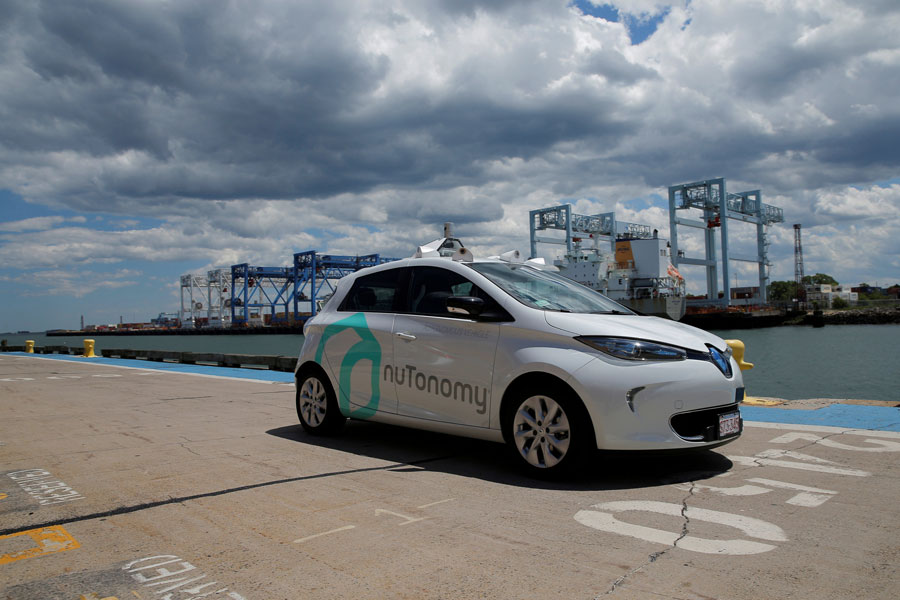Global partnership to smoothen path for self-driving cars
By Liu Hui | chinadaily.com.cn | Updated: 2017-12-13 20:55

People living in a global society could team up to enhance productions, such as self-driving cars, to provide a much higher standard of living than before, analysts said at a forum in Shanghai on Tuesday.
Themed on Global Collaboration in the Intelligent Vehicle Era, the ICV International Forum attracted dozens of AI experts from China, UK, US, Netherlands and Germany.
The global community needs to explore opportunities to enhance collaboration on quality control and regulations of automated vehicles in an increasingly AI-driven economy, said Michael Talbot, Strategic Director of the British Intelligent Networking Automatic Driving Vehicle Center.
The UK government has already provided around £100 million ($134 million) of grants through competition to 51 connected and autonomous vehicle (CAV) projects so far, according to Talbot.
"It is a mixture of collaborative research and development as well as feasibility studies involving around 150 organizations from industry, academia and government authorities, which levers around £56 million ($75million) of private investment," he said.
The UK has embarked on its on-and-off highway trials of autonomous vehicles and it might be possible for the country to spread it as far as the airport.
Open regulatory approach, together with global funds for collaborative R&D and testing infrastructure, could help the auto industry change more in the next several years than it has in the past decades, said Talbot.
Germany's progress in technologies and legislation makes autonomous vehicles possible for customers, said Ulrich Hackenberg, director of the Automotive Artificial Intelligence (AAI) in Germany.
Automotive safety in Germany remains to be the dominant driver for autonomous driving. Despite the fact that human error is factor in 91 to 93 percent of all mishaps, autonomous driving requires reliable and accurate detection and recognition of surrounding objects in real drivable environments, he added.
The goal is to develop a safe self-driving system that will be able to handle both highways and complex urban environments in a real world where no driver is required, Hackenberg said.
Anouk van der Steen, consulate general of Netherlands, said the country has comparatively high electronic vehicle sales, a very good EV charging infrastructure and a strong interest in autonomous driving. The self-driving cars powered by AI, including augmented reality and deep learning, has enabled the drivers to take over after prompted well in advance.
She said the Netherlands welcomed people from all countries to test their vehicles both in a controlled environment and in real situations, such as rough weather or changed road conditions due to an accident or road works.
Contact the writer at liuhui1@chinadaily.com.cn
























